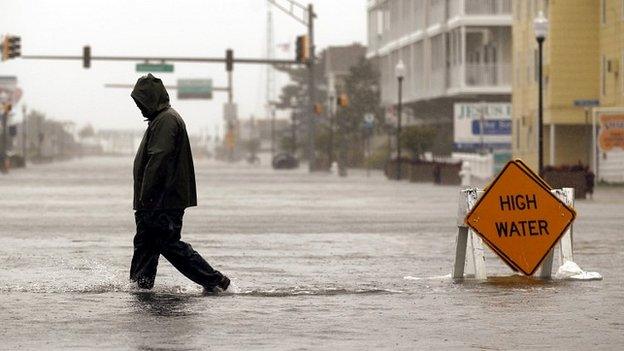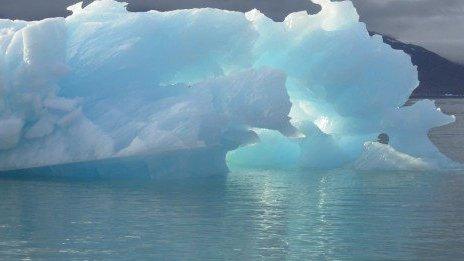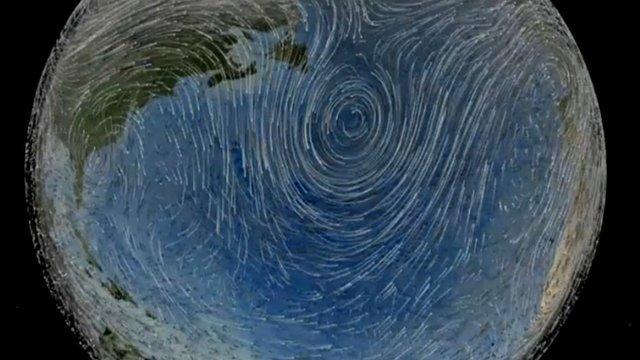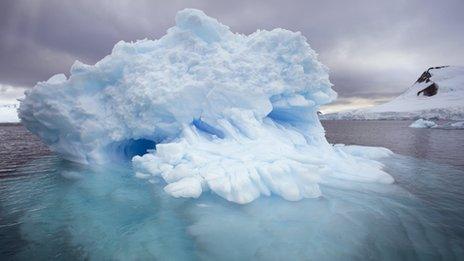IPCC climate report: Scientist's worry ahead of release
- Published

Scientists are concerned it will be difficult to stay below the 2C target
The latest update on the state of the world's climate will be released on Friday in Stockholm, Sweden.
Scientists and government officials from 195 countries have been meeting all week ahead of the publication from the UN-sponsored Intergovernmental Panel on Climate Change (IPCC).
The report will detail the physical evidence behind global warming.
The final wording of the summary for policymakers has now been approved, according to the IPCC's vice-chair, external.
Delegates were discussing the final wording late into the night on Thursday.
Drafts of this dense, complex document seen by the BBC indicate that scientists are more convinced than ever that the planet is warming and that humans are responsible for the majority of it, especially over the past 50 years.
This message is likely to be backed up by improved observations of changes in polar ice, sea level and temperature.
However, some projections of future temperature rise are likely to be lowered from the previous IPCC report in 2007. This is because of a hiatus, or pause, in warming that has occurred since 1998.
Nonetheless, Prof Jean Pascal van Ypersele, the vice-chairman of the IPCC, emphasised that the panel's statements were robust, and raised the concern that the target of staying below a 2 degrees Celsius rise in global temperatures was becoming increasingly difficult to attain.
"Any reasonable scientist has to be more worried if they have to answer the question of how to stabilise climate to a level of warming that is not considered dangerous by policymakers," he told BBC News.
Politicians took a decision in 2009 at the Copenhagen climate conference to try to limit long-term global average temperature increases to 2C. This, it was said, was the point above which dangerous changes to the planet would occur.
Prof van Ypersele said the world passed a significant milestone on the road to a 2C rise when the concentration in the atmosphere of the greenhouse gas carbon dioxide went through the 400 parts per million mark last May.
"That number is a measure of the duvet we have around the Earth. As long as its thickness is increasing, I don't see how we can't be worried that it will become more and more difficult to achieve any stabilisation target," he said.
Taking place in a former brewery, the talks were said to be making slow progress but delegates expressed optimism that the summary document would be published on time on Friday.
There have been long discussions at the meeting about the impact of the pause in temperature rises over the past 15 years, with reports of some governments attempting to play down this hiatus.
One delegate told me the language was being clarified but that "nothing is being hidden under the carpet".
Much of the time has been taken up with making the summary easier to understand.
Another delegate said that there was a great focus on avoiding misinterpretation: "It still won't be a text my mother would read and happily understand," this delegate said. "But it will be more clear than when we came here."
- Published26 September 2013

- Published23 September 2013

- Published23 September 2013

- Published23 September 2013

- Published19 August 2013
- Published19 May 2013

- Published7 March 2013

